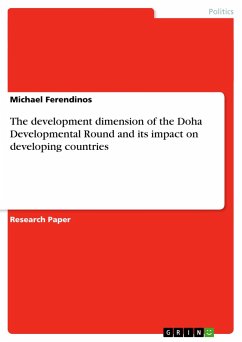Research Paper (postgraduate) from the year 2007 in the subject Politics - International Politics - Topic: Globalization, Political Economics, grade: B, Stellenbosch Universitiy, course: Global Political Economy, language: English, abstract: Globalisation has become a hot topic in the last decade or two. It has had, and continues to have, a considerable impact on the wellbeing of society; yet conceptualisation with regards to what it entails remains poor. Jan Aart Scholte has identified five usages of the concept, namely internationalization, liberalization, universalization, westernization (or modernization), and respatialization. The first four are viewed as redundant considering that they do not make any significant contribution toward a distinctive and unique definition of globalisation. Scholte believes that the concept of respatialization, referring to the narrowing down of space and time, gives the definition of globalisation a distinctive character. The purpose of this paper is to critically evaluate these five conceptions of globalisation. This will be followed by a brief discussion on other ways in which globalisation can be framed. The discussion will look at globalisation from the materialist perspectives of political realism and Marxism; as well as from the ideational perspective of constructivism.[...]








